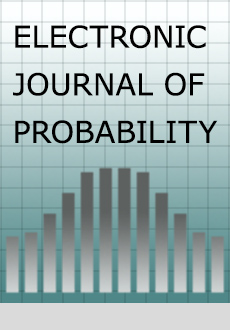Abstract
Let $B^{(H)}(t),t\in\lbrack -1,1]$, be the fractional Brownian motion with Hurst parameter $H\in (1/2,1)$. In this paper we present the series representation $B^{(H)}(t)=a_{0}t\xi_{0}+\sum_{j =1}^{\infty }a_{j}( (1-\cos (j\pi t))\xi_{j}+\sin (j\pi t)\widetilde{\xi }_{j}), t\in \lbrack -1,1]$, where $a_{j},j\in \mathbb{N}\cup {0}$, are constants given explicitly, and $\xi _{j},j\in \mathbb{N}\cup {0}$, $\widetilde{\xi }_{j},j\in \mathbb{N}$, are independent standard Gaussian random variables. We show that the series converges almost surely in $C[-1,1]$, and in mean-square (in $L^{2}(\Omega )$), uniformly in $t\in \lbrack -1,1]$. Moreover we prove that the series expansion has an optimal rate of convergence.
Citation
Endre Iglói. "A Rate-Optimal Trigonometric Series Expansion of the Fractional Brownian Motion." Electron. J. Probab. 10 1381 - 1397, 2005. https://doi.org/10.1214/EJP.v10-287
Information





